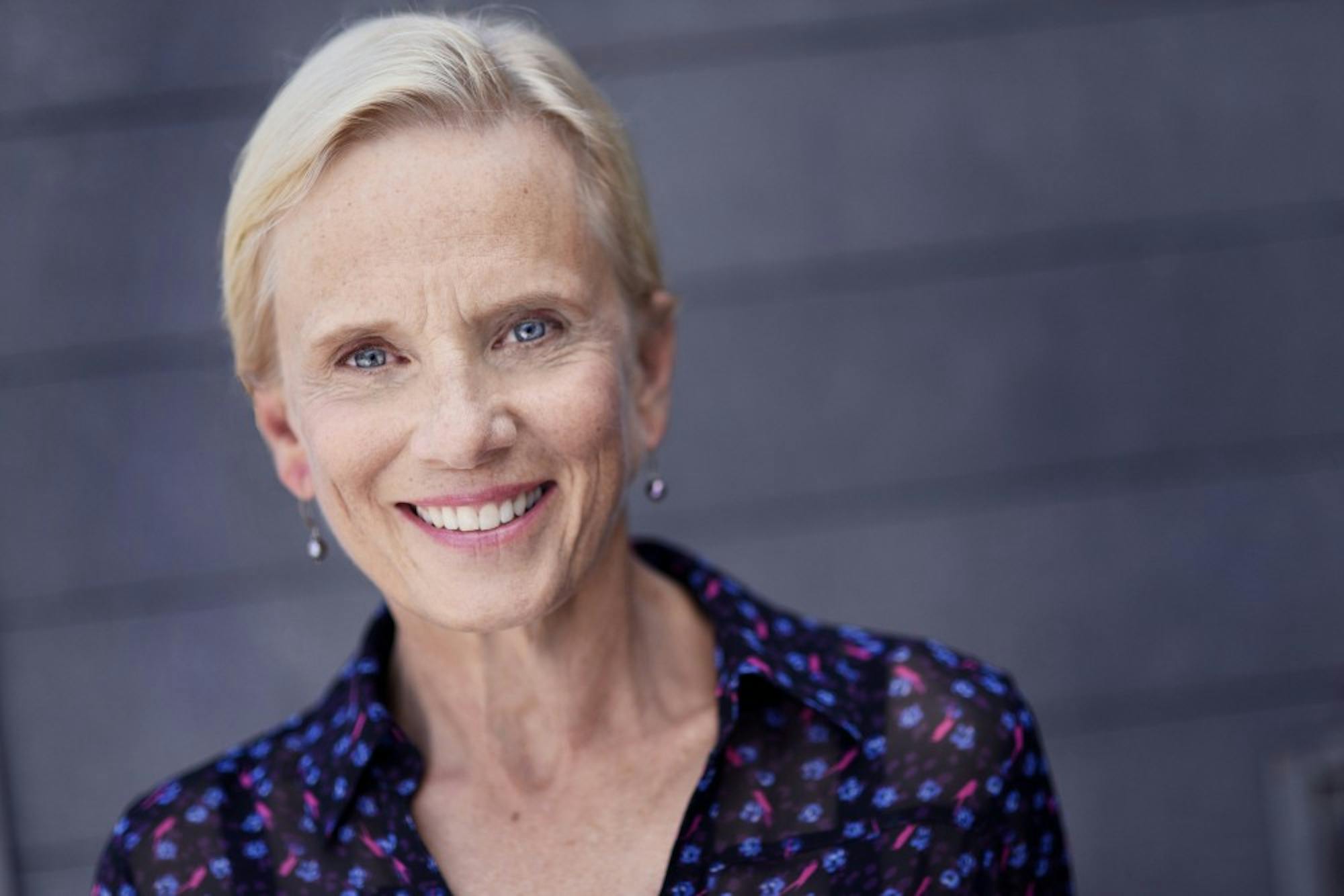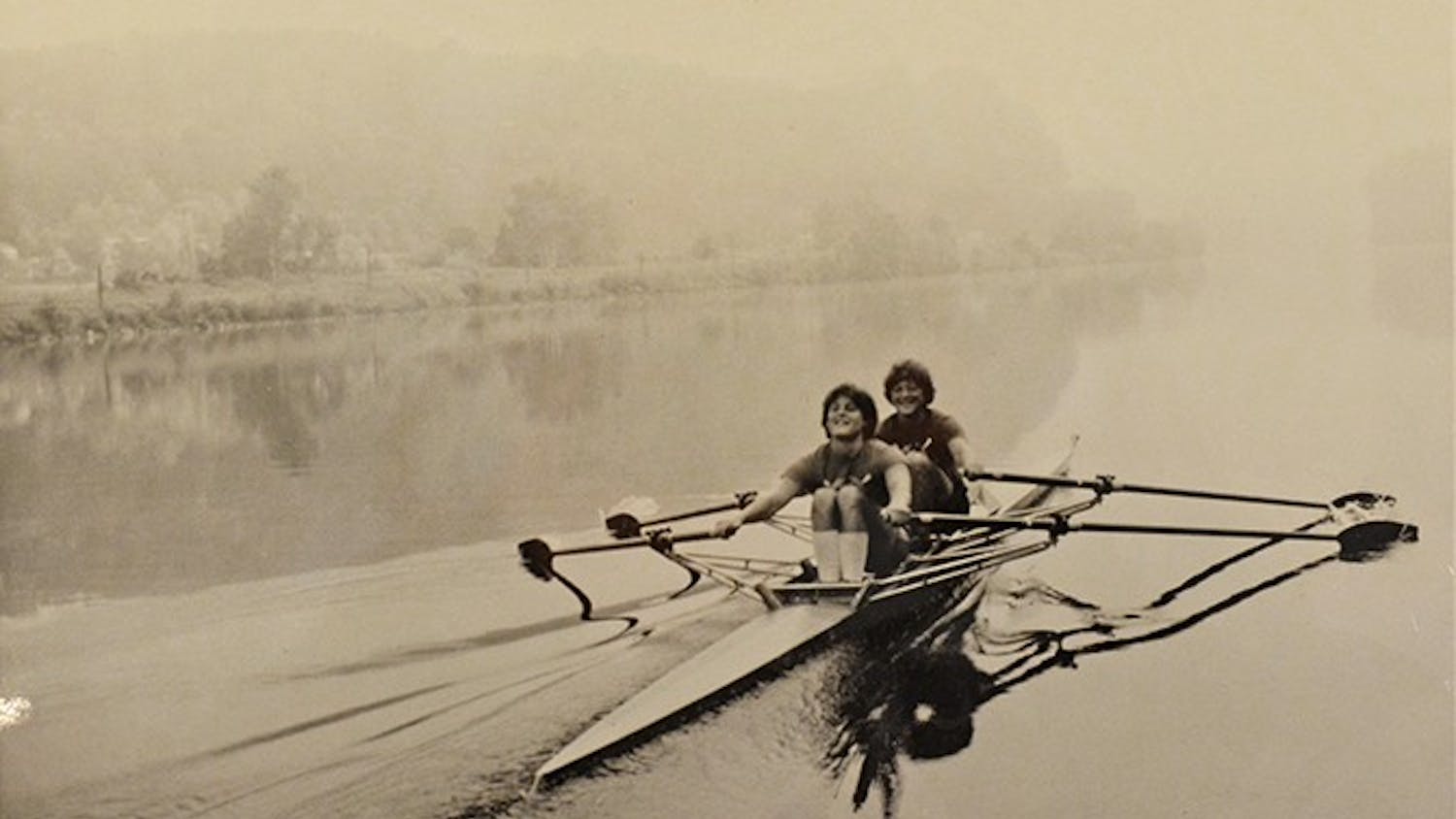In 1968, Lynn Lobban became one of the first seven women to attend Dartmouth. Recruited by the theater department, Lobban spent her time at Dartmouth trying to prove her worth in a daunting sea of men. In the process, she became a brother at Chi Phi Heorot fraternity and participated in the Parkhurst Takeover, Dartmouth students’ anti-Vietnam War demonstration. To Lobban’s frustration, the College did not allow her to complete her Bachelor of Arts degree at Dartmouth because the College had not yet formally ratified coeducation. After attending Dartmouth, Lobban moved to New York to become an actor, singer and dancer. When she was in her fifties, she received her B.A. and M.F.A. from Goddard College in Vermont.
I had the opportunity to speak with Lobban about her experiences at Dartmouth when she visited campus to discuss her recent memoir, “One of the Boys: Surviving Dartmouth, Family, and the Wilderness of Men,” with English and creative writing professor Jed Dobson’s class ENGL 55.12, “Dartmouth Fictions.” In her memoir, Lobban describes how she came to college seeking refuge from her alcoholic and abusive home only to experience date rape during her first summer at Dartmouth. Looking back on her experiences with alcoholism and assault, Lobban encourages women to trust their own power and to tell their stories, even if it seems terrifying at first.
As an honorary member of the Class of 1969, Lobban and her women classmates will return to campus on June 7-9 for their 50th reunion.
What were you feeling when you made the decision to be one of the first seven women at Dartmouth?
LL: Well, I wanted to get out of the women’s college I was in, Elmira College. I was not happy, and I came in thinking that men ran the world. With the thought of being at Dartmouth with so many men, I thought that if I could be one of them, then I could be powerful too — I could conquer the freaking world. I wanted to be like them. Power was very seductive. Not to mention, I was a hormonal teenager … I also loved the Hop; I loved the theater. They brought us into the theater because they could make use of us.
In your 2014 Dartmouth Alumni Magazine feature, "One of the Boys," excerpted from your memoir, you talk about rushing Chi Phi Heorot fraternity. On bid night, you asked the guys to treat you as if you were a man, too. In the end, did you ever find it possible to feel like "one of the boys"?
LL: No. I mean, I was delusional; I see that now. But I kept the fight going. I directed the play, and we won the play contest. Then they wanted me to direct the Hums, whatever the singing competition is. But I didn’t know how to do that, for one thing, and I didn’t want to fail. I felt like they wanted to make use of me, and obviously I wasn’t going to go on road trips. I mean, I was a woman, and that was never going to happen … I felt like they wanted to keep us in the theater department, because a lot of guys — and maybe most — didn’t even know we were here. But I just wanted to strike out and be really a part of things, you know? But again, I was kind of delusional.

Were there times when you were uncomfortable in the fraternity?
LL: Well, no, because I was so out to be a brother, I wouldn’t even date any of them. Sex or anything like that was off the table. So I went dateless for quite a while.
When you describe participating in the Parkhurst Takeover in the DAM story, you mention "crying like a girl"and use an image of being helped out of a back window like "an 18th-century woman over a cloaked rain puddle." After trying desperately to fit in with the guys, why did you use such gendered metaphors to depict your moment of weakness?
LL: At the time, I wanted to be brave enough to carry it through, because I was also so political and anti-war. I just wanted to go the distance, like the guys. Thinking very black and white, the opposite of that, to me, is being totally taken care of, or feeling like a woman who has to be taken care of and treated like a precious object. God forbid she step in a rain puddle! But emotionally, there was just no way I was going to go to jail. I felt trapped in the prison of my alcoholic home, so the idea of being actually imprisoned was not good.
After Parkhurst, you begged to be let back into the College. Near the end of the piece, you describe how you pleaded to the administration, "Am I not just the prettiest and most clever girl?" What was that moment like?
LL: I really felt a pat on the head, like the College was saying, “We’re not ready.” I wasn’t really being “realistic.” You don’t just go from a male college to boom, like that, overnight. But in that moment when I told them I wanted to stay, I really could not see any reason why I was not as equal, as good or as worthy as any man. I said that pathetic thing, too — “What’s wrong with us? You marry us!” — as if being married to one of them is the highest you can achieve.
When do you think Dartmouth was ready for women?
LL: I think it probably happened the way it needed to happen. After me, there were 30, I think, and then 60 and then more of a formal exchange. Four years later, they fully matriculated women in 1972. It took four years — the natural progression of things, I guess. But by that time, personally, I had quit school when my mother died and moved to New York to dance. I was free.
As one of the first seven women, do you feel like you had an impact on pushing Dartmouth toward that next step?
LL: Well, it was a beginning. When I spoke on a panel with other women from this period at Dartmouth, there was this whole controversy because the other women didn’t want to call themselves an “experiment.” But we were an experiment! They were going to see what it was like to have women around; what’s wrong with being an experiment? Experiments can lead to good things. When I was here at Dartmouth, I was writing letters to my advisor at Elmira, and I went through those letters as I was writing my book. It turns out Dartmouth was willing to let me stay to bypass the B.A., because they couldn’t work that out, and instead let me stay for the Master's of Fine Arts. But that wasn’t good enough for me; I wanted to be treated like the guys. When I saw that in the letters, I almost fell off my chair. I wasn’t completely cast out; they were trying to find a way to keep me here — but it wasn’t equal!
It's been many years since you were a student at Dartmouth, yet our school is still far from perfect. What advice can you offer to women at Dartmouth today, in terms of how we can continually push for gender equity and safety from gender-based violdence on campus?
LL: The alcohol and drug use have to be addressed. People are not acting rationally; we need more awareness, more people speaking out. It’s not a macho thing to binge drink; it’s an a—hole thing to do. There’s no self-care in it. As for gender equity, what women need to focus on, as I do, is our power as women. I’ve been thinking that when they say that rape is not about sex, it’s about power — actually, it’s all about power. The abuse that was done to me is what kept me from being fully out in the world. It kept me keeping a secret, with the shame that’s involved in all cases of sexual assault. I think that’s what it’s designed to do. I think that women just need to tell their stories out loud, because being afraid is what was intended. Speaking out is not so scary. I’m amazed at how powerful women are. Cease fighting everything and everyone. That doesn’t mean that you don’t take action — it just means you stop playing their game. Because theirs is a competitive game.
This article has been edited and condensed for clarity and length.
Correction appended (May 19, 2019): The original version of this article stated that Lobban finished school at Elmira College in New York after attending Dartmouth; however, she actually received her B.A. and M.F.A. from Goddard College in Vermont when she was in her fifties. The article has been updated to reflect this.



